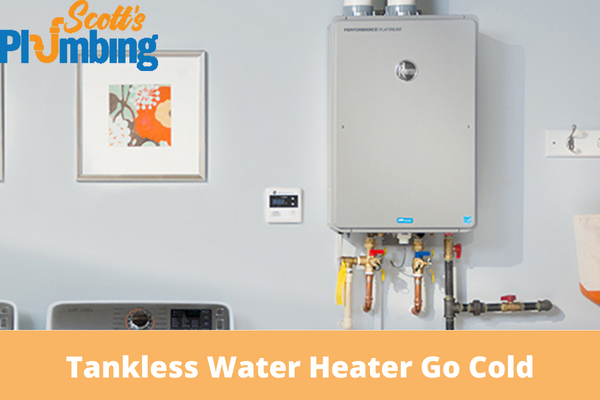You decided to invest in a tankless water heater after learning about its benefits.
Your decision to purchase may have been influenced by the fact that it eliminates wasteful standby energy use, provides endless hot water, is more efficient than tank-style devices, and reduces your monthly energy costs.
But what if the unit stops performing to your expectations after maintaining such high standards? The problem is, what do you do if the water isn’t hot enough? If so, you’ve probably pondered what causes your tankless water heater to stop producing hot water.
Top causes and how to fix them are listed below:
Water Pressure Is Weak
Low water pressure is one of the leading causes of the tankless water heater turning off mid-shower.
Your device’s internal flow is too low to activate the gas burner. Therefore the burner may shut off or refuse to light.
In a system with a standing pilot, the flame would continue to burn while the main gas burner would be turned off.
For more specific information on the minimum pressure, which is usually approximately 1kg/cm2 or 10 m of the head, refer to the user handbook.
Crossover In The Plumbing
Temperature changes are typically caused by plumbing issues, the most common of which is plumbing crossover. A defective mixing valve, single-level faucet, or damaged piping are the reasons for this problem.
As a result, the water temperature drops as cold and hot water mix. Check the crossover in the plumbing for any issues.
Disconnect the device’s cold water source and open all faucets. If water is still dripping after 10 minutes, it’s likely due to a plumbing crossover.
It is pretty simple to fix the plumbing crossover. Look at the mixing valve or the valve and see if you need to replace the cartridge.
It’s crucial to bear in mind that changing the cartridge might not resolve the issue. Getting rid of the problem may need you to invest in a high-quality faucet or cartridge.
Heat Exchanger Blockage
Cold water can be attributed to mineral buildup in hard water areas or bore well water.
Calcium and magnesium, two minerals in hard water, attach to the parts of your machine. The water heater’s heat exchanger is ruined and the pipes corroded due to this accumulation.
Furthermore, a blocked heat exchanger is not safe to operate and should be avoided. Flushing your water heater regularly will keep it free of limescale and mineral accumulation.
If buildup has already developed, it is recommended that a professional plumber be called in to assist in cleaning the lines.
Final Thoughts
When a tankless water heater fails to heat water, it might be due to any of the issues above. You should be able to resolve the problems according to the advice given.
On the other hand, if the problems seem too complex for you to handle on your own, you should seek the assistance of a professional expert or plumber. That’s when Scott’s Plumbing comes in! Our crew will provide expert guidance as we explain the steps that must be taken. So contact us now to solve all your plumbing problems.



